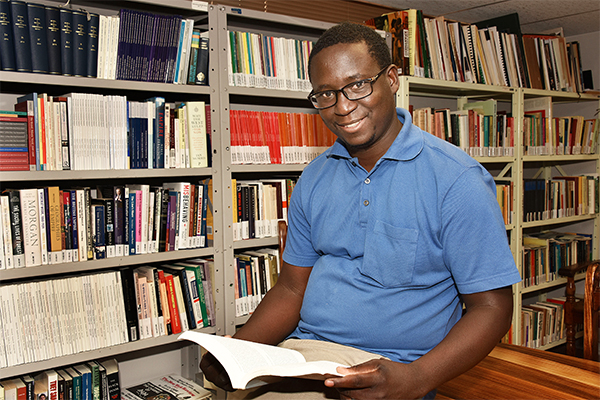Latest News Archive
Please select Category, Year, and then Month to display items
18 November 2024
|
Story Jacques Maritz
|
Photo Supplied
 Muhammad Cassim, a second-year student in the Department of Engineering Sciences in the Faculty of Natural and Agricultural Sciences.
Muhammad Cassim, a second-year student in the Department of Engineering Sciences in the Faculty of Natural and Agricultural Sciences.
Muhammad Cassim, a second-year student in the Department of Engineering Sciences in the Faculty of Natural and Agricultural Sciences at the University of the Free State, will participate in the winter university project in Pskov, Russia, from 25 November to 9 December 2024.
The winter school aims to strengthen relationships among young engineers and deepen international interaction via skills improvement, joint projects, and social cohesion. The programme boasts a densely packed education block, project block, and cultural block.
Cassim is part of the UFS Grid Related Research Group and actively participates in research centred on complexity science. He intends to complete his BSc Physics degree with Engineering subjects and progress towards postgraduate studies in the UFS Department of Physics.
He is currently working on verifying experimental developments in the field of synchronisation in complex networks. While he has already completed this high-performance computing training in his first year under the leadership of Albert van Eck (Director, UFS E-research), he is looking forward to the masterclasses in holographic modelling, deep learning, direct laser deposition, and database. Closely resembling his current research, he will have the opportunity to gain more experience in the use of set theory and graph theory in solving digital information processing problems.
For more information about international scholarships for study abroad opportunities, contact Mbali Moiketsi in the Office for International Affairs.
Cassim’s student profile is the culmination of the department’s strategy to produce young applied scientists who are subjected to the culture of research during their undergraduate study and could articulate with ease to other departments for postgraduate studies. The department aims to align with the UFS’ Vision 130 by producing competitive students who can operate in the postgraduate paradigm with the digital themes of veterinary science and ecological engineering science.
Land a fertile field for historians
2017-12-25

Dr Admire Mseba, historian and researcher in the International Studies Group (ISG).
Photo: Charl Devenish
The use of land and the economics of Southern Africa at present is a contentious subject at almost every level of society. A historian and researcher who revels in happenings in these two areas, is Dr Admire Mseba, a postdoctoral research fellow in the International Studies Group (ISG) at the UFS.
Dr Mseba grew up in the Mberengwa region in southern Zimbabwe, known for cattle farming and mineral mining. While at the University of Zimbabwe, he became interested in economic history and archaeology, and completed his PhD at the University of Iowa in the USA. During his time there, Dr Mseba also became passionate about environmental history.
A historian's ability to think and engage critically on diverse subjects drew Dr Mseba to his field. Currently, he is busy with three research projects. Firstly, he is working on a book on social relations, about access to land in Zimbabwe. He is also examining regional and national efforts to control migratory pests during the 20th century, in particular, the red locust. In collaboration with a colleague at the ISG, Dr Mseba is also researching monetary systems in central Africa, covering the present-day countries of Zimbabwe, Malawi, and Zambia.
Dr Mseba believes future research opportunities in the domains of economic and environmental history abound. For one, the land question has been very topical in Zimbabwe for more than a decade—as it is now in South Africa—and needs more scrutiny. Regarding agrarian pestilences, he indicates the recent phenomenon of armyworm invasion. “There are so many opportunities for historians to investigate. There are so many ways to think about these things and trying to put it in perspective.”